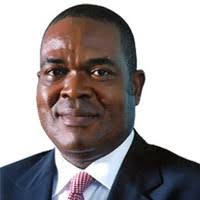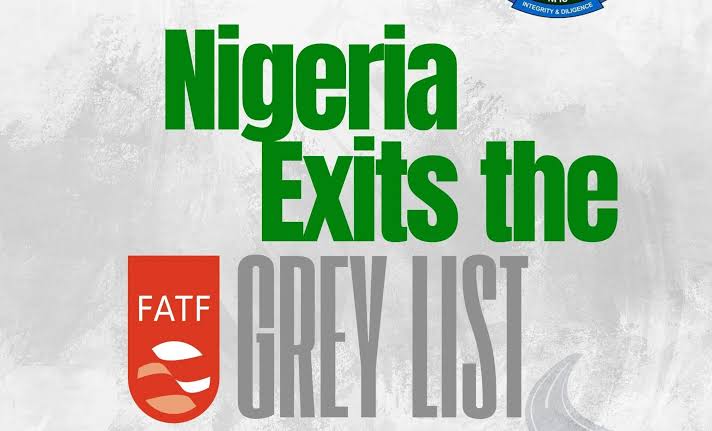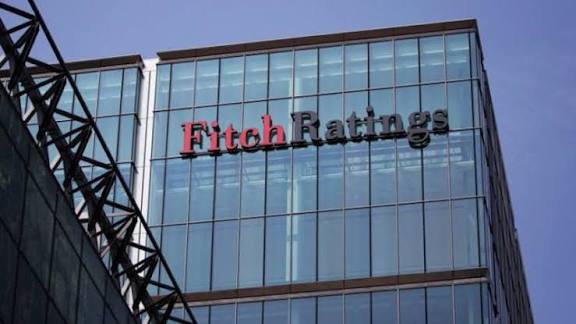By Marcel Okeke
Palpable jubilation has been going on in Nigeria, especially in the officialdom and the financial sector in the past few days owing to the country’s removal from the ‘grey list’ of the Financial Action Task Force (FATF). Practically every department of any consequence at the Federal level has issued a statement hailing the country for the ‘great achievement.’
FATF is an intergovernmental organization that develops policies to combat money laundering, terrorist financing, and other threats to the international financial system. Formed in 1989, FATF sets global standards for anti-money laundering (AML) and counter-terrorism financing (CFT) regulations. Nigeria was placed on FATF ‘grey list’ in February 2023, following the identification of strategic deficiencies in the country’s Anti-Money Laundering and Countering the Financing of Terrorism (AML/CFT) framework.
But at its plenary meeting in Paris, France (October 24, 2025), the global finance watchdog (FATF) announced the removal of Nigeria, South Africa, Mozambique, and Burkina Faso from the grey list, pointing out that “these countries’ governments have stepped up efforts to combat money laundering and terrorist financing.” A high-level delegation comprising the Minister of Justice and Attorney-General of the Federation, Lateef Fagbemi; Minister of Finance and Coordinating Minister of the Economy, Wale Edun; Minister of Interior, Olubunmi Tunji-Ojo; and Chief Executive of the Nigerian Financial Intelligence Unit (NFIU), Hafsat Bakari was present at the announcement of the country’s removal from the FATF’s grey list in Paris. In celebration of this ‘feat’, the NFIU has issued a press statement, widely carried in Nigerian and foreign media; the Federal Ministry of Finance has similarly issued a statement. The Presidency has done the same, just as the Ministry of Justice did. NFIU said it worked to address concerns over the past two years through a 19-point action plan developed in collaboration with FATF and the Inter-Governmental Action Group Against Money Laundering in West Africa (GIABA), its regional counterpart.The Presidency said “the exit from the FATF grey list marks the beginning of a new chapter in the nation’s financial reform agenda as Nigeria will sustain the already institutionalized reforms, deepen institutional collaboration and continue to build a financial system that Nigerians and the world can trust.” The President commended the NFIU for ensuring the complete and timely implementation of the country’s action plan.
Yet, another statement issued by the Minster of State, Ministry of Finance, Dr. Doris Uzoka-Anite, said that with Nigeria’s exit from FATF grey list, the country’s vision of a US$1 trillion economy by 2030 now becomes more achievable.
She said “On October 24, 2025, Nigeria achieved a historic milestone that will reshape our nation’s economic future. At the FATF Plenary in Paris, France, Nigeria was officially removed from the grey list—a designation that had constrained our financial system and limited opportunities for ordinary Nigerians since February 2023.” The Minister pointed out that Nigeria’s exit was loaded with a bagful of benefits.On its part, Nigeria’s Senate also commended President Tinubu, the NFIU, and other stakeholders for their pivotal role in securing the country’s removal from the grey list. It described the development as “a landmark achievement for the country’s financial system and international image.” In the face of all these congratulatory messages and celebration of Nigeria’s exit from FATF’s grey list, the big question remains: how did we get to where we were in February 2023 to be on the grey list? Could there be any connection between the political activities of that time and the gross violations of the FATF frameworks? What about Nigeria’s environment that makes for the mushrooming of Ponzi schemes?
Nigeria’s recent economic history shows that the country redesigned its currency in February 2023, when the Central Bank of Nigeria (CBN) introduced new naira notes to replace the old designs. This move was part of efforts to modernize the currency and “curb counterfeiting and illicit financial activities.” It was also in the same month (February 2023) that the last presidential election was held; Bola Ahmed Tinubu (then candidate of the All Progressives Congress, APC) emerged as the winner.
The political history of Nigeria portrays the tight relationship between electioneering and movement of huge “illicit” funds; that is, money laundering of varied hews by politicians in their desperation to influence the elections/induce the electorate. Much of the movement of such funds, without a doubt, took place in the build-up to the general elections in 2023.
The proliferation of Ponzi schemes in Nigeria has been directly linked to the activities of politicians who float the schemes merely as ‘conduits’ to launder illicit funds. When, recently, the Economic and Financial Crimes Commission (EFFC) published a huge list of 58 Ponzi schemes operating in the country, it expressly ascribed their ownership to politically exposed persons (PEPs).
The EFCC Chairman, Ola Olukoyede said at a function in Abuja: “PEPs in Nigeria are using internet fraudsters, popularly known as ‘yahoo-yahoo boys’ to launder billions of Naira in stolen public funds into offshore accounts.” He said the “involvement of politicians in these illicit activities highlights systemic corruption within Nigeria’s political and governance systems.”
The EFCC boss said: “when these PEPs steal money in billions, they give it to these boys; they open crypto wallets, and from there, the money goes abroad.” Incidentally, the crypto wallets are owned and operated by Ponzi schemes, floated by ‘faceless’ entities.
The other day, the Director-General of the Securities and Exchange Commission (SEC), Dr. Emomotimi Agama, disclosed that while fewer than three million Nigerians invested in the capital market, more than 60 million engaged daily in gambling activities, spending an estimated US$5.5 million every day.
Agama made the revelation in a lead paper, titled, “Evaluating the Nigerian Capital Market Masterplan 2015—2025,” which he presented at the annual conference of the Chartered Institute of Stockbrokers (Nigeria). So, gambling is the name of the big business!With the EFCC’s and SEC’s revelation of the involvement of powerful politicians in the illicit financial flows (IFF) across the globe and role of gamblers, Nigeria’s recent exit from the FATF’s grey list gets under threat. The wild jubilation and celebration accompanying the ‘feat’ are rather premature and misplaced because sooner than later, the ‘old days’ will be here with us again.
Today, the gerrymandering, politicking (and even electioneering) toward the 2027 general elections in the country have all commenced. Politicians and their business cohorts are already building war chests in various guises for the 2027 elections.
Somehow, the origins of terrorism, banditry, kidnapping and other social ills have been traced to the activities of some politicians who were trying to ‘fortify’ themselves against their real or perceived opponents. Such fortifications have not stopped, but could get worse as 2027 draws nearer. FATF is bound to notice such a recrudescence; and once again, put Nigeria in its ‘rightful place’. So, the question remains: is Nigeria’s removal from FATF’s grey list final?

The author, Okeke, a practicing Economist, Business Strategist, Sustainability expert and ex-Chief Economist of Zenith Bank Plc, lives in Lekki, Lagos. He can be reached via: obioraokeke2000@yahoo.com (08033075697) SMS only




